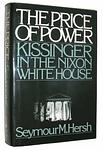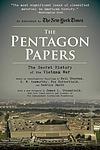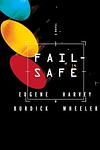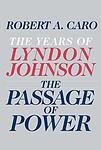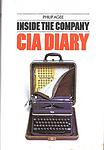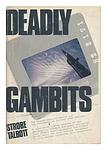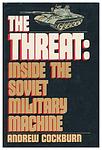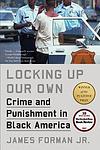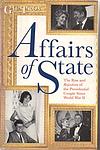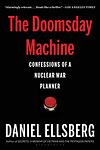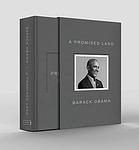The Greatest "Political, Washington, D.C." Books of All Time
Click to learn how this list is calculated.
This list represents a comprehensive and trusted collection of the greatest books. Developed through a specialized algorithm, it brings together 300 'best of' book lists to form a definitive guide to the world's most acclaimed books. For those interested in how these books are chosen, additional details can be found on the rankings page.
Genres
The "Political" category of books encompasses works that explore the theory, practice, and history of government and politics. These books may cover topics such as political ideologies, political systems, political institutions, political movements, and political leaders. They may also examine the relationship between politics and other areas of society, such as economics, culture, and international relations. Political books can be both informative and thought-provoking, offering readers insights into the complexities of the political world and the challenges of governing in a democratic society.
The "Washington, D.C." category for books encompasses a diverse array of literature that is either set in, influenced by, or pertains to the capital city of the United States. This genre includes political thrillers that delve into the machinations of American governance, historical accounts detailing the city's evolution, and biographies of influential figures whose lives and careers were shaped by their time in the nation's capital. It also features non-fiction works exploring the city's unique cultural, social, and urban dynamics, as well as guidebooks for visitors. From the corridors of power on Capitol Hill to the vibrant streets of its various neighborhoods, books in the "Washington, D.C." category offer readers a window into the heart of American politics, policy, and history.
Countries
Date Range
Reading Statistics
Click the button below to see how many of these books you've read!
Download
If you're interested in downloading this list as a CSV file for use in a spreadsheet application, you can easily do so by clicking the button below. Please note that to ensure a manageable file size and faster download, the CSV will include details for only the first 500 books.
Download-
1. All the President's Men by Bob Woodward, Carl Bernstein
"All the President's Men" is a non-fiction book that details the investigative journalism conducted by two reporters who uncover the details of the Watergate scandal that led to President Nixon's resignation. The book provides a detailed account of the reporters' struggles to uncover the truth, the obstacles they faced, their persistence, and the ultimate revelation of a political scandal that shook the United States.
-
2. The Manchurian Candidate by Richard Condon
The novel is a political thriller that delves into the dark world of espionage and brainwashing during the Cold War. It follows the story of a former prisoner of war who, upon returning to the United States, is hailed as a war hero. Unbeknownst to him and the public, he has been programmed by a foreign power to be an unwitting assassin. His conditioning is triggered by a complex set of stimuli, and he is directed to carry out a high-profile political assassination that could alter the course of history. As the plot unfolds, a fellow soldier begins to unravel the conspiracy, racing against time to prevent the programmed soldier from executing his deadly mission, which is orchestrated by a Communist conspiracy aiming to seize control of the American government.
-
3. The Armies of the Night by Norman Mailer
This book is a unique blend of historical fact and autobiographical fiction, providing a detailed account of the October 1967 March on the Pentagon. It describes the author's experiences during the anti-Vietnam War demonstrations, where he was arrested and spent the night in jail. The narrative explores the author's interactions with other protesters, his observations on the nature of political activism, and his personal reflections on the Vietnam War. It also delves into the author's struggles with his personal beliefs and his role as a public figure during this turbulent period in American history.
-
4. Team of Rivals: The Political Genius of Abraham Lincoln by Doris Kearns Goodwin
This book explores the political acumen of Abraham Lincoln, focusing on how he assembled his cabinet from political adversaries, many of whom initially dismissed him for his perceived lack of experience and ungainly appearance. The narrative delves into how Lincoln used his rivals' talents to navigate the tumultuous times of the Civil War, maintaining unity and leading the nation towards the abolition of slavery. It underscores Lincoln's extraordinary ability to turn rivals into allies, demonstrating his leadership and his profound impact on American history.
-
5. The Price of Power by Seymour M. Hersh
"The Price of Power" offers a critical examination of the presidency of Richard Nixon with a particular focus on the Vietnam War. The book delves into the secretive and often manipulative tactics employed by Nixon and his administration, including the undermining of peace talks to secure his own political victory. It presents a detailed and disturbing account of political maneuvering, deception and abuse of power at the highest level of American politics.
-
6. The Pentagon Papers by New York Times
The book in question is a compilation of classified documents that were leaked to the press, revealing the inner workings and decision-making processes of the U.S. government regarding the Vietnam War. It exposes a series of governmental lies and cover-ups, showing that successive administrations had misled the public about the scale and purpose of American involvement in Vietnam. The release of these papers had significant implications for the relationship between the government and the media, sparking a fierce debate over the balance between national security and the right to know, and ultimately contributing to a shift in public opinion against the war.
-
7. Personal History by Katharine Graham
"Personal History" is an autobiography of a woman who inherited a media empire, The Washington Post, following her husband's suicide. The book explores her journey from a privileged yet sheltered upbringing to leading one of the most influential newspapers in the United States. It provides an intimate look into her personal life, including her struggles with self-confidence and her role in the coverage of significant historical events such as the Pentagon Papers and the Watergate scandal.
-
8. Fear and Loathing on the Campaign Trail '72 by Hunter S. Thompson
This book is a visceral, first-person account of the 1972 presidential campaign, as seen through the eyes of a maverick journalist. It blends political analysis, cultural commentary, and personal anecdotes to capture the chaotic spirit of the election that pitted incumbent President Richard Nixon against Democratic challenger George McGovern. The narrative is infused with the author's signature gonzo style, characterized by a highly subjective and often satirical approach to journalism. Through a series of articles originally written for a major magazine, the book delves into the machinations of political operatives, the mood of the American electorate, and the dark underbelly of the campaign trail, all while grappling with the broader implications of the American political system.
-
9. The Bully Pulpit: Theodore Roosevelt, William Howard Taft, And The Golden Age Of Journalism by Doris Kearns Goodwin
This historical work delves into the vibrant era of early 20th-century America, exploring the close friendship and eventual political rivalry between two presidents, Theodore Roosevelt and William Howard Taft. It also highlights the crucial role of muckraking journalists who, with the support of Roosevelt's bully pulpit, exposed corruption and galvanized public opinion. The narrative weaves together the personal and political dynamics that shaped the Progressive Era, showcasing how these leaders and the press collectively brought about significant reforms and forever transformed the American political landscape.
-
10. Fail Safe by Eugene Burdick, Harvey Wheeler
The book is a Cold War thriller that explores the terrifying possibility of a technical malfunction in the United States' nuclear deterrent system, leading to an accidental path toward a nuclear war with the Soviet Union. As a group of American bombers mistakenly receives an erroneous go-code, they head towards Moscow, fully armed and ready to attack. The President and his advisors must navigate a tense and complex situation, trying to recall the planes and avoid an international catastrophe, while dealing with the political and moral implications of their decisions. The narrative delves into the intricate workings of military protocols and the precarious nature of nuclear command and control systems, highlighting the razor-thin line between safety and global annihilation during the height of nuclear tensions.
-
11. The Passage Of Power: The Years Of Lyndon Johnson by Robert Caro
"The Passage of Power: The Years of Lyndon Johnson" by Robert Caro is the fourth volume in his acclaimed biography of the 36th President of the United States. This book covers the years from 1958 to 1964, including Johnson's ascent to the presidency following the assassination of John F. Kennedy. Caro explores Johnson's struggles to pass civil rights legislation, his relationship with Kennedy's family, and his efforts to establish his own presidential legacy. The book also delves into Johnson's personal life, including his marriage to Lady Bird Johnson and his health issues. Overall, "The Passage of Power" provides a comprehensive and insightful look into one of the most complex and consequential figures in American political history.
-
12. Inside The Company: Cia Diary by Philip Agee
"Inside the Company: CIA Diary" is a detailed exposé written by a former CIA officer, providing an in-depth look into the operations and strategies of the Central Intelligence Agency during the 1960s and 1970s. The book reveals the inner workings of the agency through a personal diary format, detailing covert operations in Latin America and the methods used to manipulate politics and governments in the region. The author's account includes descriptions of espionage, political assassinations, and the training of paramilitary forces, shedding light on the ethical and moral dilemmas faced by CIA agents and the impact of U.S. foreign policy on global politics.
-
13. The Coup by John Updike
"The Coup" is a satirical novel that tells the story of Colonel Hakim Félix Ellelou, the ruler of a small, fictional, underdeveloped African nation. The narrative, delivered through Ellelou's first-person perspective, explores his anti-Western sentiments, his struggles with modernity and development, and his complex personal life, including his relationships with his four wives. The novel presents a critique of both Western imperialism and African dictatorships, using humor and wit to examine the complexities of global politics.
-
14. The Emperor Of Ocean Park by Stephen L. Carter
"The Emperor of Ocean Park" is a gripping novel that combines elements of mystery, legal drama, and family saga. Set in the affluent world of African-American elites in New England, the story follows Talcott Garland, a law professor and former Supreme Court nominee, as he investigates the mysterious death of his father, a prominent conservative judge. As Talcott delves deeper into his father's past, he uncovers a web of secrets, political intrigue, and corruption that threatens to unravel his own life and reputation. With its intricate plot and richly drawn characters, the book explores themes of power, loyalty, and the complexities of race and identity in America.
-
15. Deadly Gambits by Strobe Talbott
"Deadly Gambits" is a detailed examination of the arms control negotiations between the United States and the Soviet Union during the Cold War, particularly under the Reagan administration. The book delves into the complex interplay of political, military, and diplomatic efforts on both sides, highlighting the challenges and intricacies of negotiating reductions in nuclear arsenals. It provides an insightful look into the strategies employed by key figures in both countries, the impact of these negotiations on international relations, and the overarching quest for strategic stability in a nuclear-armed world.
-
16. The Nine: Inside The Secret World Of The Supreme by Jeffrey Toobin
"The Nine" by Jeffrey Toobin provides an in-depth look at the inner workings of the Supreme Court, focusing on the years between 2005 and 2007. Toobin explores the personalities, ideologies, and decisions of the nine justices who serve on America's highest court, including the contentious nominations of John Roberts and Samuel Alito. He also delves into landmark cases such as Bush v. Gore and the legalization of same-sex marriage. Through interviews with justices and their clerks, as well as extensive research, Toobin offers a fascinating glimpse into the secretive world of the Supreme Court.
-
17. Original Intent And The Framers' Constitution by Leonard W. Levy
"Original Intent and the Framers' Constitution" critically examines the concept of originalism, the judicial approach that interprets the U.S. Constitution based on the intent of its framers. The book delves into historical records, including the Federalist Papers and Constitutional Convention debates, to assess whether the original intentions of the framers can be definitively understood and should guide contemporary constitutional decisions. The author argues that the framers' intentions are not only ambiguous but that they also anticipated the Constitution to be a living document, adaptable to changing societal needs rather than bound by historical constraints. This work challenges the validity of originalism in modern judicial review and underscores the complexities of applying historical intentions to contemporary issues.
-
18. The Threat by Andrew Cockburn
"The Threat" examines the development and consequences of the United States' obsession with high-tech weaponry and military strategies. The book critically explores how this fixation on advanced technology often overshadows more practical and effective forms of warfare, leading to significant strategic failures and a bloated defense budget. Through detailed analysis and case studies, the narrative delves into the politics, economics, and biases that drive America's military-industrial complex, questioning the efficacy and sustainability of current defense practices.
-
19. Consent To Kill by Vince Flynn
In this high-octane political thriller, a counterterrorism operative finds himself in the crosshairs of an international conspiracy when a wealthy Saudi kingpin, seeking vengeance for the death of his son, puts a bounty on the operative's head. As the protagonist navigates a treacherous path filled with espionage, betrayal, and moral ambiguities, he must also confront personal demons and the complexities of his own past. The narrative unfolds with relentless pacing, delivering a tale of retribution and survival that tests the limits of the operative's skills, loyalty, and the very essence of his character.
-
20. Blowback by Brad Thor
In "Blowback," readers are plunged into a thrilling narrative where the protagonist, a skilled counterterrorism operative, is tasked with preventing a catastrophic attack on the United States. The plot thickens when he discovers that an ancient weapon of mass destruction, thought to be a myth, has been rediscovered and is in the hands of a dangerous enemy. As the clock ticks down, the operative must navigate a treacherous path of deceit and betrayal, racing across the globe to unravel historical secrets and stop the impending doom that threatens to unleash chaos on a massive scale.
-
21. Days Of Fire: Bush And Cheney In The White House by Peter Baker
"Days of Fire" is a comprehensive account of the presidency of George W. Bush and his vice president, Dick Cheney, during their eight years in the White House. Peter Baker, a journalist who covered the Bush administration for The New York Times, provides a detailed analysis of the key events and decisions that shaped their time in office, including the 9/11 attacks, the wars in Iraq and Afghanistan, Hurricane Katrina, and the financial crisis. Through interviews with key players and extensive research, Baker offers a nuanced portrait of two men who were both praised and vilified for their leadership and legacy.
-
22. Locking Up Our Own: Crime and Punishment in Black America by James Forman
This book delves into the complex and controversial issue of mass incarceration in the United States, particularly within the African American community. It explores the historical, social, and political factors that contributed to the high rates of black imprisonment. The author examines the role of African American leaders in advocating for tough-on-crime policies and their unintended consequences. The book is a thought-provoking analysis of the intersection of race, crime, and justice in America.
-
23. An Affair Of State by Richard A. Posner
"An Affair of State" delves into the scandal and subsequent impeachment of President Bill Clinton, focusing on the legal and ethical dimensions of his affair with Monica Lewinsky and the investigations led by Independent Counsel Kenneth Starr. The book critically examines the actions of the key players involved, the political and judicial processes, and the broader implications for the American legal system and presidential power. The author, a prominent legal scholar and judge, provides a detailed analysis of the constitutional, moral, and procedural controversies surrounding the case, arguing for a reevaluation of the intersection between private morality and public office.
-
24. The Doomsday Machine by Daniel Ellsberg
"The Doomsday Machine" provides a chilling exploration of the precarious systems of nuclear command-and-control, which have consistently been more prone to human and technical error than officially recognized. Drawing from the author's experience as a defense analyst and whistleblower, the book reveals how the strategies and policies governing the use of nuclear weapons have endangered humanity by bringing us closer to accidental or intentional global annihilation. Through declassified documents and insider knowledge, it exposes the true extent of the existential risk posed by the nuclear arsenals of superpowers, questioning the rationality and morality of policies that continue to jeopardize human survival.
-
25. A Promised Land by Barack Obama
"A Promised Land" is a memoir by Barack Obama, the 44th President of the United States. The book covers his early life, his political career, and his presidency. Obama reflects on his successes and failures, his relationships with world leaders, and the challenges he faced during his two terms in office. He also shares personal anecdotes about his family and the toll that public life took on them. Overall, "A Promised Land" is a thoughtful and introspective look at Obama's life and presidency.
Reading Statistics
Click the button below to see how many of these books you've read!
Download
If you're interested in downloading this list as a CSV file for use in a spreadsheet application, you can easily do so by clicking the button below. Please note that to ensure a manageable file size and faster download, the CSV will include details for only the first 500 books.
Download



